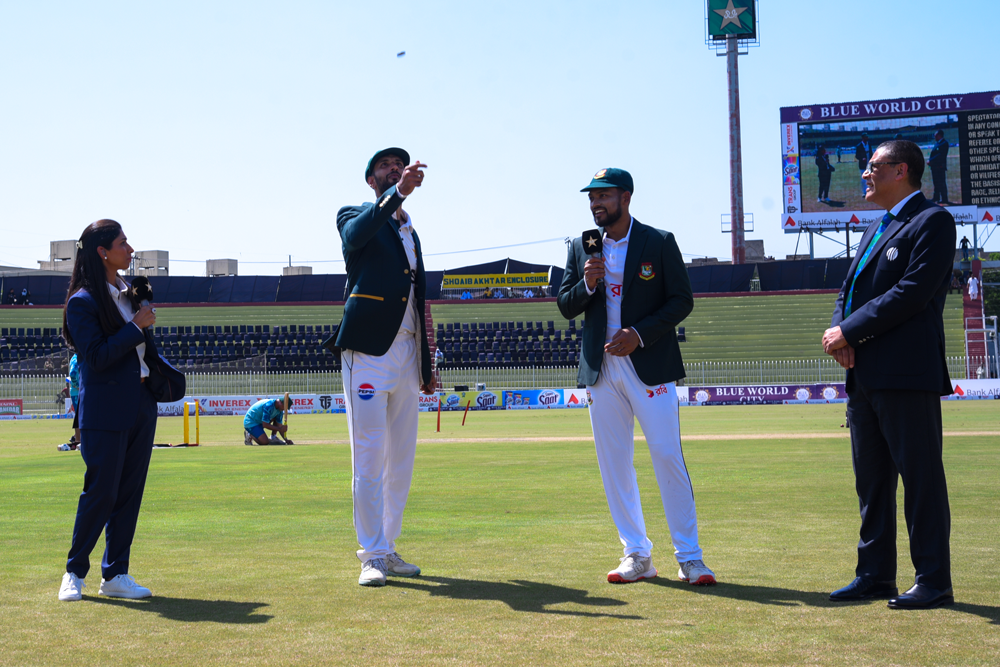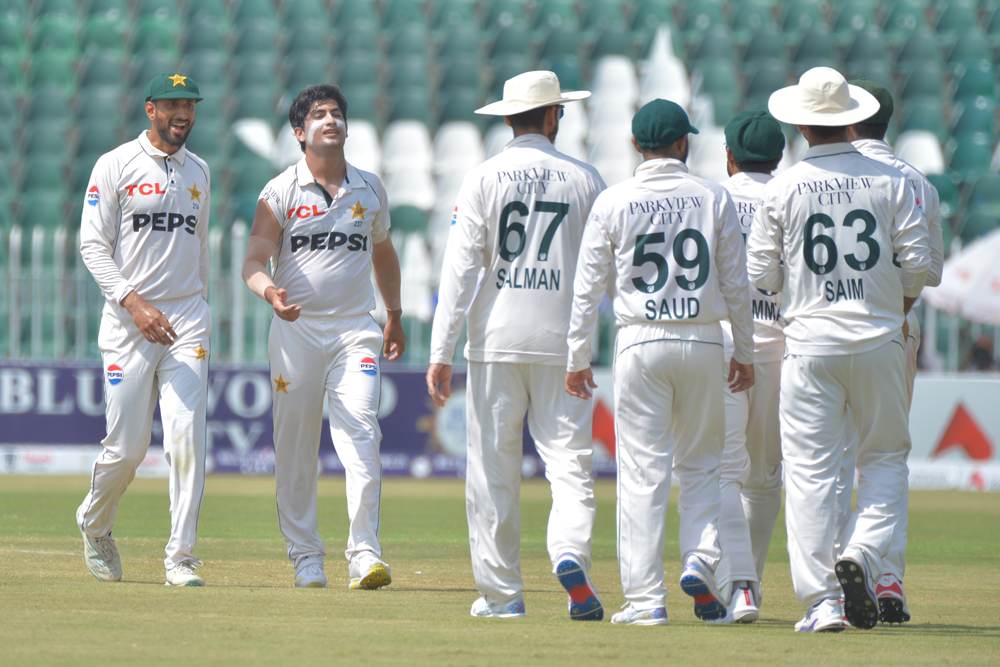I write these lines as a long-term admirer of Pakistan cricket but also as a distant spectator of its fury and soul-searching over the recent 2-0 Test series loss to its neighbour Bangladesh. I must record that neutral English cricket lovers generally supported the Bangladeshis, as underdog victors overcoming a long history of fearsome problems for their country. Some players notably dedicated their performances and victories to the protestors who overthrew Bangladesh’s dominant government and are now seeking a less corrupt and more egalitarian successor. There is an important study to be written on the power of political events to motivate – or demotivate – sporting performance.
There is certainly no disgrace in losing to this Bangladesh team. Their bowlers performed well as a unit, they fielded well, they batted intelligently and above all resiliently. Any team in the world would welcome Mushfiqur Rahim and Litton Das, who masterminded their astonishing recovery from 26 for six in the second Test. He reminded me of Javed Miandad in his ability to get runs in a desperate situation.
But I can understand the response of Pakistani media and cricket supporters. As a historian of Pakistan cricket I am saddened to see so many familiar accusations within it: the wrong captain, poor team selection, poorly prepared pitches, a lack of basic care and mentoring for players, general administrative failure. It is especially depressing to read of delays in stadium repair and refurbishment which may require the entire forthcoming England Test series to be transferred to Sri Lanka or the UAE. That must be especially bitter for Pakistan’s cricket lovers who remember their long recent deprivation of international visits. Having watched Pakistan play Test cricket (of high quality) in the empty echoing stadiums of the UAE I find it incredible that the country now might be unable to stage it for its home supporters.
I cannot suggest remedies for these as a foreigner but I do wonder who in the end will take responsibility for the state of Pakistan cricket and meeting the expectations of its fans and players at all levels? There is a general crisis of accountability in world cricket, by no means confined to Pakistan, and indeed in all major world sports. They have long passed out of the control of their active participants. Instead, they are all dominated by networks of commercial, media and political interests serviced by professional administrators who answer only to them.

At the apex of cricket is the International Cricket Council. In many ways it has done a fine job of growing the global game and providing a structure in which countries can progress through it. But it is also an Indian fiefdom or at best an Indian-English-Australian cartel based on the three most lucrative cricket markets. It barely answers to other cricket nations, let alone to grassroots players and fans in any country. It has not held India to account for its politically-motivated refusal to play bilateral series against Pakistan or the growing threats to Muslim cricketers and cricket fans in India. Apart from gestures it has ignored the environmental and climate challenges to cricket’s very existence. In spite of its own rules, it has done nothing for the women cricketers and spectators of Afghanistan, now threatened by a new set of oppressive decrees from its government. The ICC, like FIFA and the International Olympic Committee, now confirms a melancholy rule that the more money flows into the international governance of any sport, the less it does for the human rights of any of its players.
I cannot think of any national cricket board that has any form of direct democratic representation for its cricketers and cricket lovers. I would be glad to be corrected if I am wrong, but that is certainly true of the England and Wales Cricket Board, a private limited company. Its majority shareholders are the English counties and nearly all of those are still membership associations. But being dependent on the revenues handed to them from the ECB and its allocation of international matches to them, the counties are clients rather than controllers of the ECB. It required a prodigious organized members’ revolt to frustrate a recent plan by the ECB to cull the counties and move English cricket towards a franchise operation. This plan is still on the stocks and active cricket players and fans will be forced to bestir themselves again.
Pakistan has had more changes in cricket administration than any other cricket nation since its inception. In principle, it should be more democratic than that of most other countries, since the founding father, Justice Cornelius, formally connected it to the Pakistan government. But that of course invites commentary on Pakistan’s democracy and governance which is beyond my remit in this publication or any other.
Pakistan cricket has also seen an unusual degree of intervention by its courts. When I studied the turbulent administrative episodes of 2013-14 it seemed to me that any Pakistan cricket fan had the right to take the administration to court. I do not know if this is still the case, but it is far from a satisfactory means of securing accountability in cricket.
In almost every country cricket lovers are treated as consumers of “cricket products”, especially products for television and social media rather than live participation. They have no power to shape those “products” except as consumers, by rewarding those which appeal to them and deserting those which do not. There are huge risks from this not just for cricket but for all sports in a huge competitive global leisure market. If Pakistan’s cricket lovers have no means to demand what they expect from their sport’s administrators – a winning attractive team, fair opportunities for players to progress into it, a strong domestic structure, attractive facilities to play and watch the game, and above all, competent decision-makers who take responsibility for error and failure – they may desert it.
